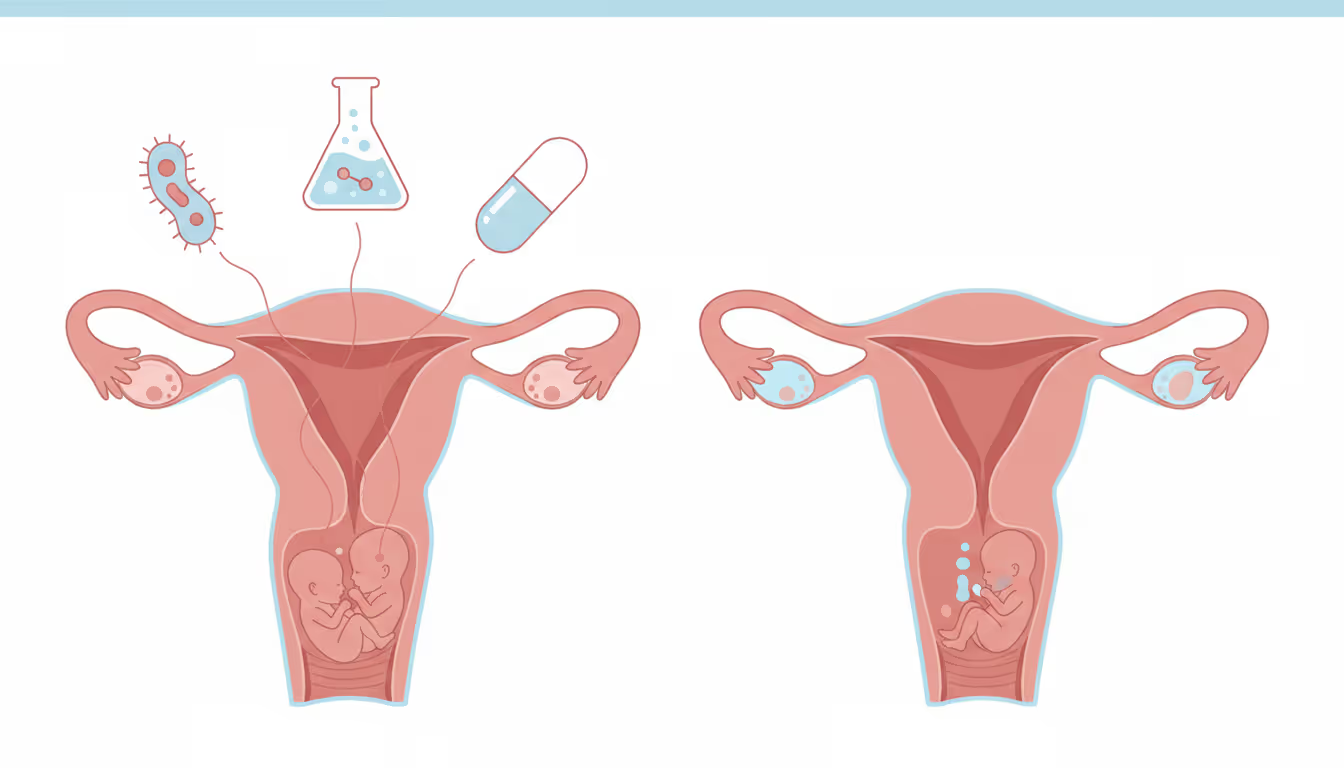
A teratogen is any substance that can interfere with the development of an embryo or fetus, potentially leading to birth defects or even ending the pregnancy. Teratogens encompass various types, such as maternal infections, chemicals, and drugs. Some examples of medications that can act as teratogens include ACE inhibitors like benazepril (Lotensin), captopril (Capoten), enalapril (Vasotec), fosinopril sodium (Monopril), lisinopril (Zestril, Prinivil), lisinopril with hydrochlorothiazide (Zestoretic, Prinzide), quinapril (Accupril), and ramipril (Altace); isotretinoin for acne (Accutane, Retin-A); alcohol, whether consumed regularly or in large amounts; male hormones (androgens); antibiotics such as tetracycline (Achromycin), doxycycline (Vibramycin), and streptomycin; anticoagulants like warfarin (Coumadin); anticonvulsants including phenytoin (Dilantin), valproic acid (Depakene, Depakote, Valprotate), trimethadione (Tridione), paramethadione (Paradione), and carbamazepine (Tegretol); mood stabilizers like lithium (Eskalith, Lithotab); chemotherapy drugs such as methotrexate (Rheumatrex) and aminopterin; the antirheumatic and chelating agent penicillamine (Ciprimene, Depen); antithyroid medications like thiouracil and carbimazole/methimazole; diethylstilbestrol (a hormone); and thalidomide (Thalomid). It is crucial that pregnant women or those planning to conceive avoid alcohol and unnecessary drugs. However, there are instances where essential medications are also teratogens, such as certain blood thinners and lithium. In such cases, it is important for women to collaborate with their healthcare providers to see if alternative treatments are available before and during pregnancy. Some risks associated with birth defects are confined to specific pregnancy stages, allowing the medication to be resumed afterward. Additionally, some drugs may pass into breast milk, and if they cannot be substituted, mothers might need to consider alternatives to breastfeeding.




